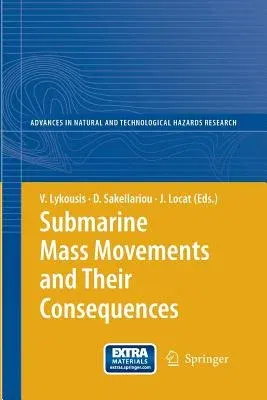Submarine mass movements and their consequences are of major concern for
coastal communities and infrastructures but also for the exploitation
and the development of seafloor resources. A tragic example of the
vulnerability of coastal communities has been provided by the Indonesian
tsunami of December 2004. Since 2005, as part of the scientific
community efforts to minimize the impact of such natural disasters, the
International Union of Geological Science (IUGS) and the United Nation,
Educational, Scientific, and Cultural Organization (UNESCO) have
sponsored an International Geoscience Program on Submarine Mass
Movements and Their Consequences (IGCP-511). One of the main objectives
of IGCP-511 members is to hold bi-annual symposia on these types of
marine and coastal geohazards. The first symposium of this series was
held in Nice (2003) and the second in Oslo (2005). This 3rd Symposium on
submarine Mass Movements and Their consequences provides an opportunity
to review the state of the art in risk evaluation from submarine
landslides, deposit characterization and its implication for coastal and
offshore development. By bringing together professionals from the
industry and academia with a range of different expertise, these
proceedings hope to cover the full spectrum of aspects related to
subaqueous mass movements and related consequences. The
interdisciplinary views gathered in this book, arising from the
conference, help identify future challenges, mitigation strategies and
better management of the seafloor. To that effect, the Santorini is
quite a unique venue for scientists and engineers interested in marine
and coastal geohazards.


